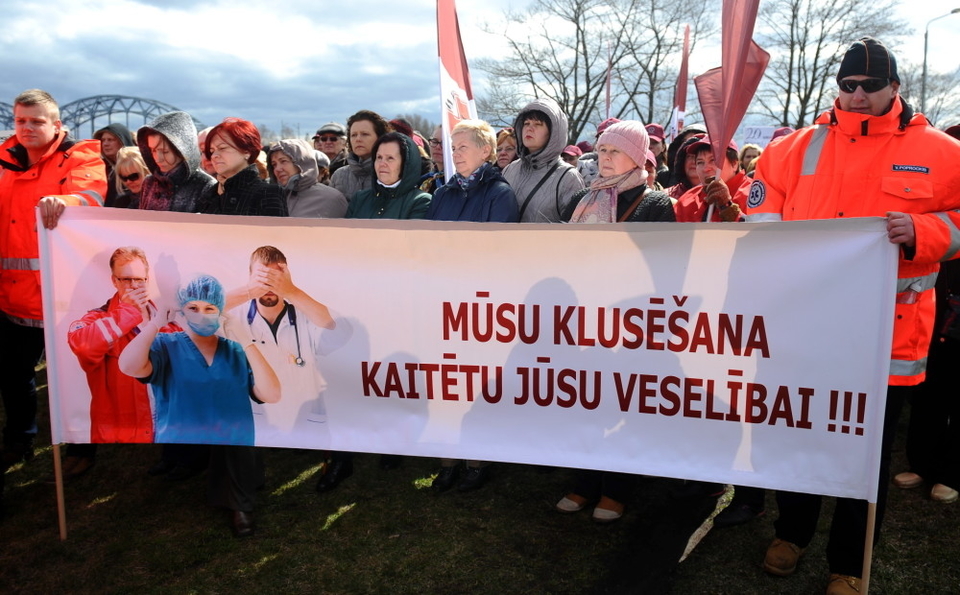Health workers in Latvia are gearing up for countrywide protests demanding increased funding for the health sector and additional recruitment. The Latvian Trade Union of Health and Social Care Workers (LVSADA) has said that the strategy and formal date for the the protests will be decided at its next council meeting on November 19.
While the Latvian parliament, known as the Saeima, has already agreed to increase spending in the medical sector, recent reports have revealed that the budget for 2020 provides less money for medical salaries. Infuriated by what they term as the insensitive and insincere attitude of the government, the health workers have decided to go on strike.
The union said that according to the Latvian Health Care Financing Act 2017, public health funding in the country was supposed to be increased to at least 4% of GDP by 2020. The act was passed in December 2017 and also mandated a state health insurance system. However, the budget proposals approved on October 11 by the Latvian government, led by prime minister Arturs Krišjānis Kariņš from the center-right Unity party (Medium-Term Budgetary Framework for 2020, 2021 and 2022), earmarks only EUR 1.2 billion for public health financing. This is only 3.3% of the projected GDP. In light of this, the union has called for additional budgetary funding to raise the medics’ wages, which were collectively supposed to exceed EUR 100 million by 2020.
Valdis Keris, the head of LVSADA told the media, “The government is secretly prepared to reduce health care funding to 3.3% of GDP over the next few years. On the one hand, we are, of course, ready for talks in line with the obligations set out in the Health Care Financing Act, and because of our bitter experience, we are also forced to prepare for the protest”.





